What I want to see from VR in 2024
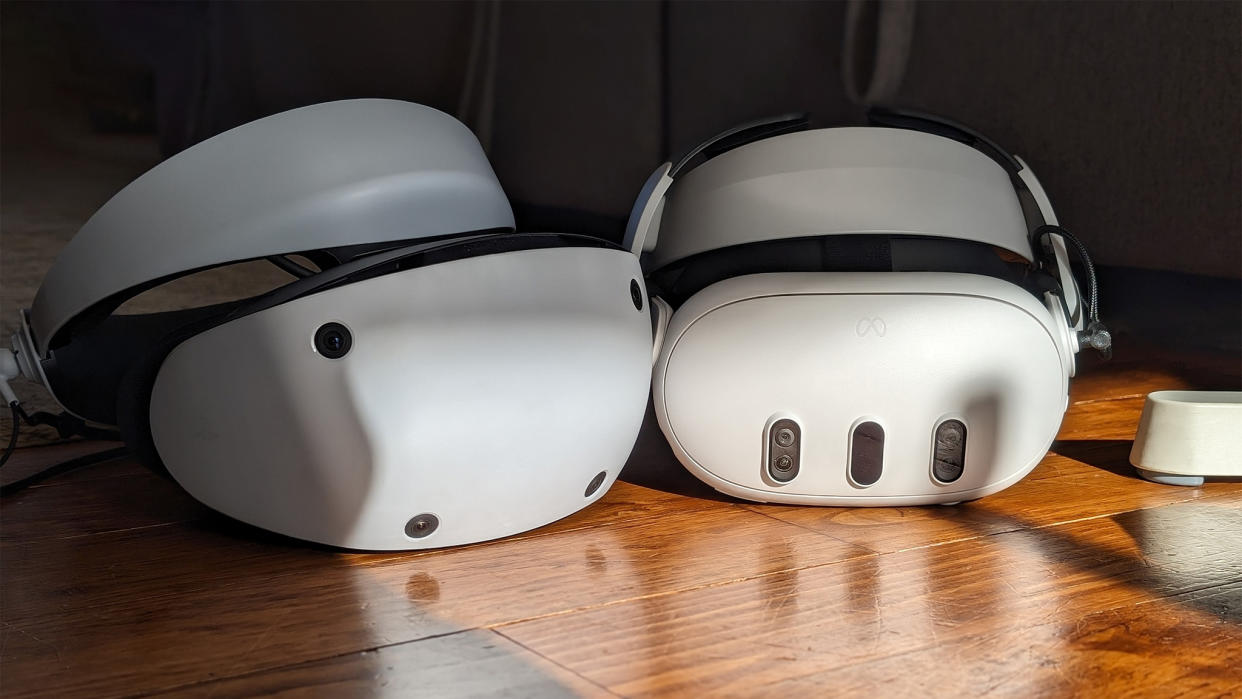
It's when I think back on prior years of VR gaming and the effort it used to take just to play 30 minutes of Beat Saber that I realize how much VR has improved over the years.
AC thVRsday

In his weekly column, Android Central Senior Content Producer Nick Sutrich delves into all things VR, from new hardware to new games, upcoming technologies, and so much more.
Thank heaven for VR consoles like the Meta Quest 3 because playing VR games these days is typically as simple as slipping the headset on and moving your arms. I don't have to fight with audio problems, wireless streaming latency, driver updates, or the usual random issues I have with PC games every time I turn on my PC.
And that leads me to wonder: what could 2024 hold in store for VR headsets like the Quest 3? Heaven knows what Meta's monthly update schedule could bring, but I've got a few wishes I'd like to see come true this New Year.
Wider audience appeal

I recently spoke with Andrew Eiche, CEO of Owlchemy Labs — the company responsible for hit games like Job Simulator, Vacation Simulator, and Cosmonious High. My goal was to get a handle on what makes games like Job Simulator so universally likable, and I came away with quite the revelation.
Games like Job Simulator aren't just great games for new VR gamers; they've also got lasting power. Eiche tells me that "a very surprising number of people come back and play" Job Simulator and Vacation Simulator repeatedly.
Some of the wide appeal of these games is the excellent game design that's easy to understand and doesn't make people motion sick. But Eiche has a different theory that makes a lot of sense, and it's one he says "all VR games with extreme staying power" implement.
"It lets you roleplay and it doesn't put exposition in the way of your roleplaying."
The top-selling games on Quest are made up of surprisingly different games. Games like Beat Saber and Job Simulator are simple, easy to understand, and fun for all types of players. On the other side of the spectrum, games like Bonelab and Blade & Sorcery push the boundaries of virtual movement and can make even the most seasoned VR gamers a little queasy at times.
So, what could these two disparate groups of games possibly have in common? They all allow you to be the character you want to be without forcing oodles of backstory or narrative on the player.
It's funny because this seems to be the opposite theory of what makes AAA traditional games popular on consoles and PCs. Games that sell well or make waves on those systems are ones involving heavy narratives or well-known characters — think God of War, The Last of Us, Halo, Call of Duty, The Legend of Zelda, etc.
So, does that mean that most VR games need to be sandbox-style adventures? Not necessarily, but it does seem that designing games around this concept tends to do well in VR. Ultimately, VR games that sell best in the long run are ones that "let you fulfill a specific fantasy," as Eiche puts it.
Universal comfort settings
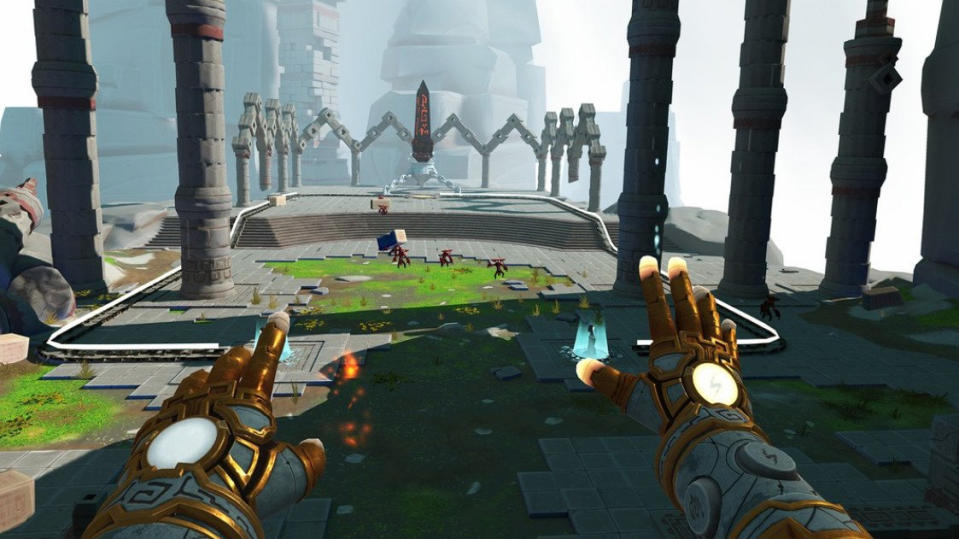
But, regardless of how a game is played or a story told, no one will want to play it if they're constantly uncomfortable.
And here's where I'm calling for some help from Meta. When the PS5 launched, it was the first time I had ever seen system-wide settings that would apply in all games you played.
I prefer an inverted Y-axis camera when looking around in any first or third-person game when using a controller, so I applied this setting in my PS5 system settings. Now, when I start a new game, I don't have to go into options and change this setting every time. It's automatically applied in every game. The PS5 also supports many other similar settings that get automatically applied to games, and I want to see Meta do this on the Quest.
We need system-level comfort ratings and an overhaul of Meta's comfort rating system.
More specifically, I'm referring to comfort settings. Meta needs to both define and mandate specific comfort controls that players can choose and use in all games. The problem right now isn't just that each game handles comfort controls differently, although that's plenty confusing on its own. It's that there's no real standard for how comfort features look or work outside of loosely accepted concepts like tunneling or vignetting.
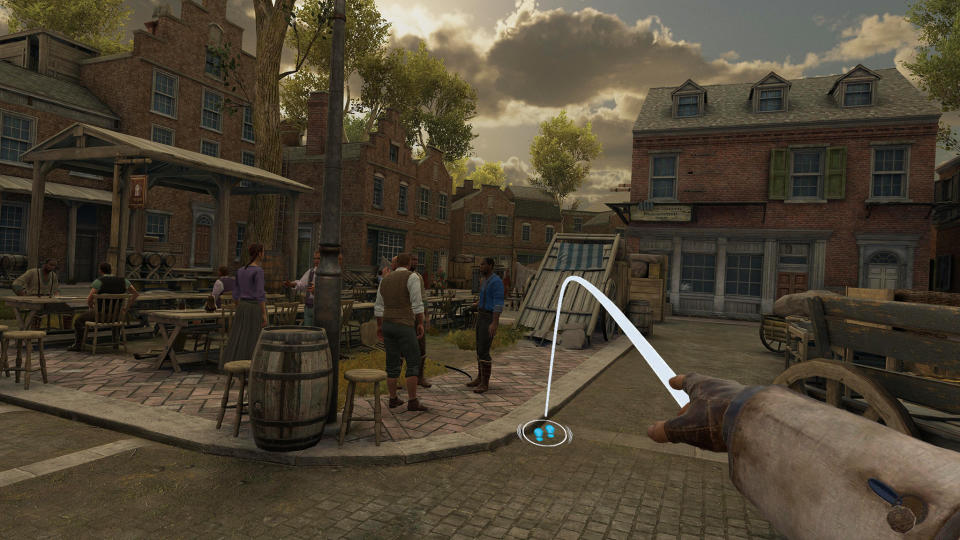
Ideally, Meta needs to define locomotion and comfort options at the system level and require developers to support the basics in each category. Folks who can only play VR games with teleport locomotion, for instance, should never be put in a situation that forces smooth locomotion and can, thus, make someone feel motion sick.
Likewise, Meta needs to more broadly define comfort ratings on its store page. Right now, it's simply a green for "comfortable," yellow for "moderate," and red for "intense." This isn't good enough.
"Back in the day, green, yellow, and made sense...[but] these comfort ratings have existed for, you know, closing in on a decade now," Eiche noted. Meta needs to add far more granular definitions of what comfort options a game contains. As Eiche puts it, VR customers are more savvy. "It's time to be more savvy about [these ratings]."
I'd also love to see wide adoption of Meta's new upper-body tracking feature, which promises to put an end to VR motion sickness altogether.
Grander games
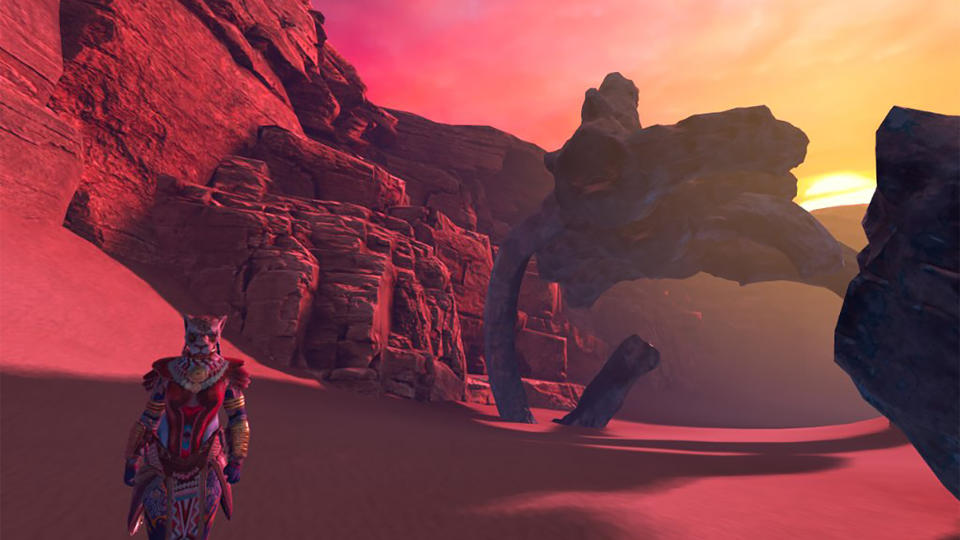
I fully recognize that games like Assassin's Creed Nexus and Asgard's Wrath 2 take years of development, but that doesn't stop me from hoping that we might see a few massive releases like this pop up in 2024!
At the moment, however, the list of potential AAA-quality VR games is very short. This isn't terribly uncommon around the New Year for any system, as developers tend to wait until the Spring to announce new projects, and some of the biggest releases won't be announced until the Summer. Remember, Asgard's Wrath 2 didn't even get unveiled until June 1, and that turned out to be VR's biggest and best game.
AAA games don't come often, but 2023 has proven that VR thrives when there's more of them.
So, what are we expecting at this point? Early in 2024, we should see the release of anime-inspired Attack on Titan: Unbreakable, the time-traveling narrative-heavy Wanderer: The Fragments of Fate, and the mech battler UNDERDOGS.
And later in the year, we're expecting a behemoth of a game in Behemoth (pun intended). This is a new open-world Skyrim-like game from the developers of The Walking Dead: Saints & Sinners.
And who knows, maybe we'll get lucky enough to finally see Grand Theft Auto: San Andreas get released on the Meta Quest platform now that GTA VI has been unveiled.
As for the PSVR 2, I hope Sony pulls out all the stops for the system in 2024. We only saw three first-party Sony-published titles in 2023: Gran Turismo 7 and Horizon Call of the Mountain, both of which arrived at the same time as the PSVR 2 launch, and Firewall Ultra, which arrived in the fall.
Heck, Capcom contributed nearly as many releases as Sony, dropping two massive Resident Evil VR games.
But this isn't just a PSVR 2 problem. Sony hasn't exactly been forthcoming with its first-party portfolio on the PS5, either. We're getting yet another remaster of a game that doesn't need a remaster (The Last of Us Part 2). We also know Insomniac is working on Wolverine, but it's likely that the game isn't coming until 2026 at this point. Outside of that, the list of first-party Sony-published games for even the PS5 in 2024 is essentially blank right now.
In other words, just because we know little doesn't mean there's little to hope for.
Stop breaking things

Meta updates its Quest headsets every single month by adding features, tweaking designs, and fixing bugs. While the company has drastically improved the design and overall experience over the years, there have been more than a few times when a feature was clearly rushed and resulted in more than a few unwanted bugs.
A monthly update schedule is amazing when it doesn't continually introduce new bugs.
I understand that a monthly update schedule looks nice on paper, but having this kind of cadence isn't great if it just introduces bugs. With Apple Vision Pro's release on the horizon, the little mistakes that Meta keeps making are only going to look even worse, juxtaposed with what that obnoxiously expensive headset can do.
Now, don't get me wrong. I'm well aware that iOS and other Apple products can be plenty buggy on their own, but many of Meta's mistakes on the Quest feel as if they could be solved by doing just a bit more testing before sending out a software update to every headset in existence.
A happy new year
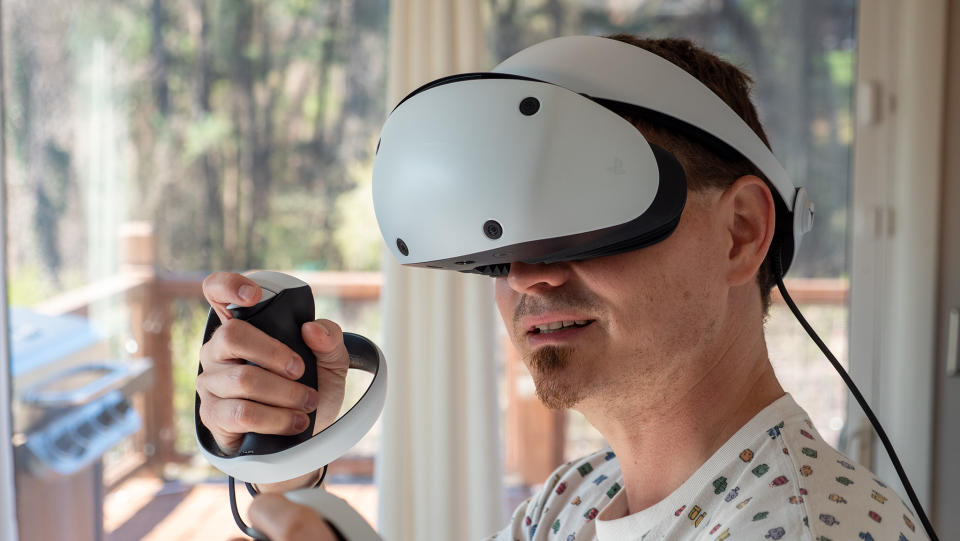
While I could go on for a while, this list sums up my biggest requests for VR in 2024. This year was arguably the best year VR has ever seen, with huge adoption numbers during the holiday sales period and more new players than ever.
I'm beyond happy to see more people getting to experience VR than ever before, especially now that the industry is so much more mature than in previous years. Headsets like the Meta Quest 3 are more comfortable to use, offer important features like mixed reality, and offer significantly better tracking and visual fidelity than previous generations.
It's going to be a very bright year for VR, and I can't wait to play more VR games than ever!
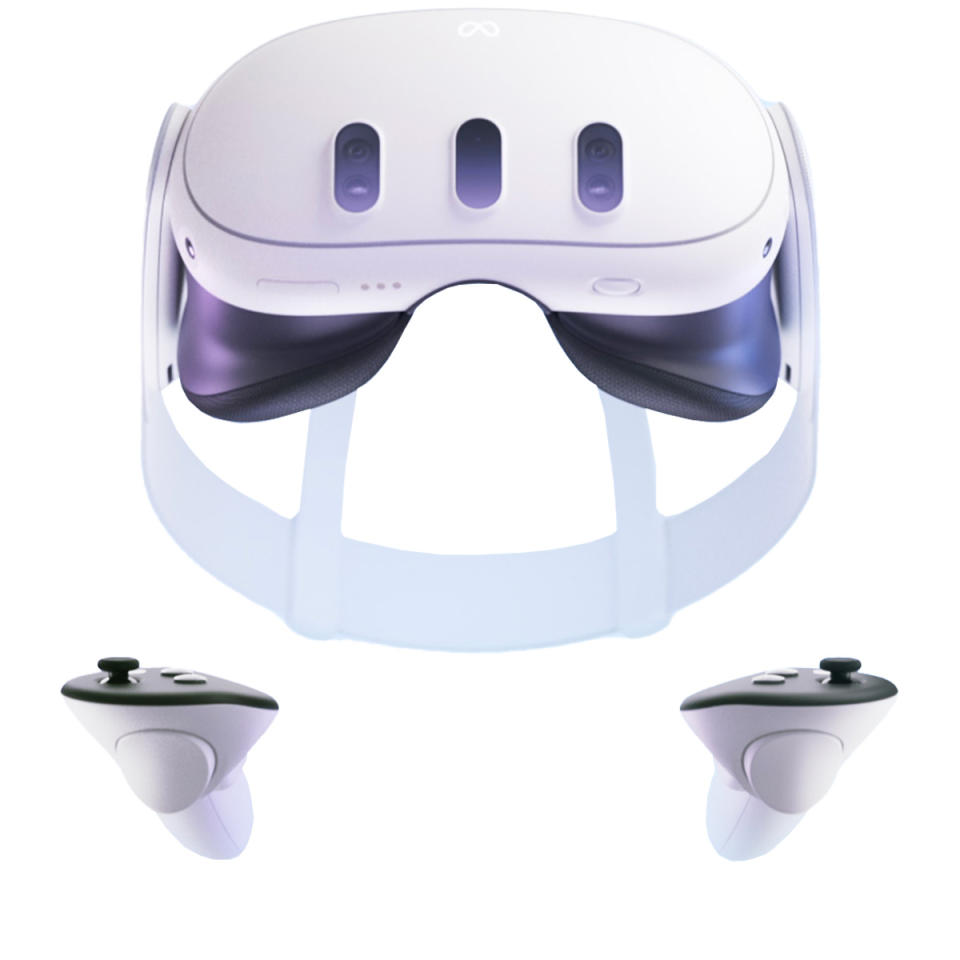
Meta Quest 3
This next-generation VR console makes it easy and fun to play VR games anytime, anywhere, and with anyone. You get stunning graphics, great games, and full-color passthrough video so you can see your surroundings.

